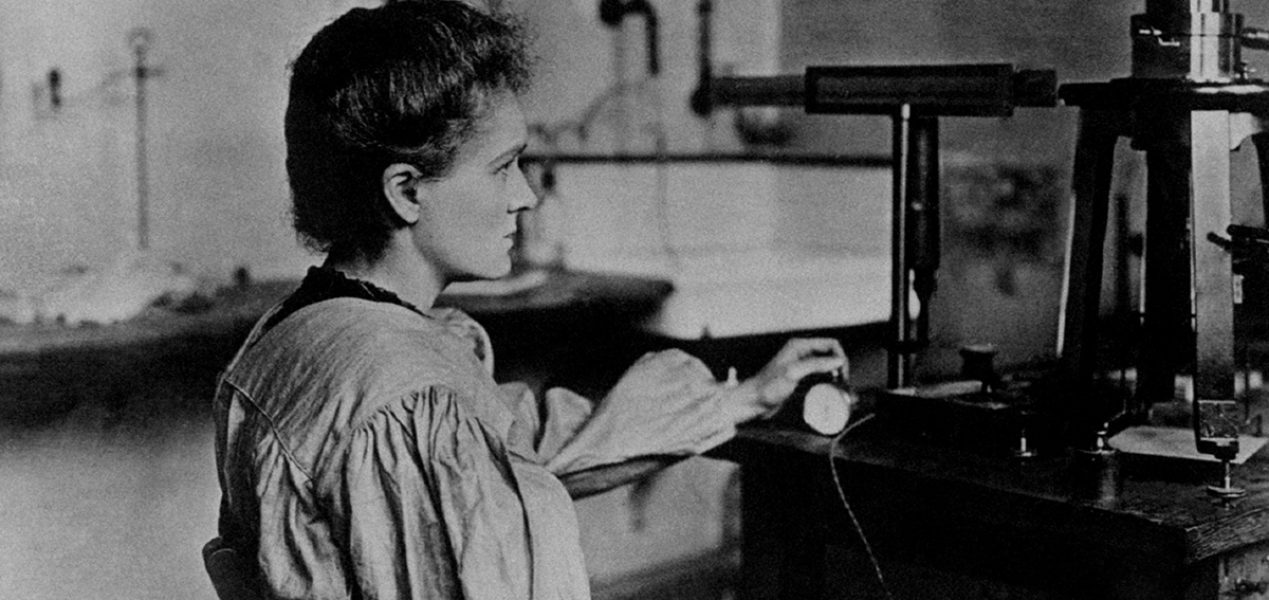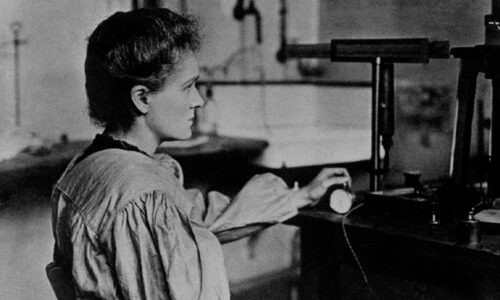International Women’s Day is 8 March.
A date that underscores —by means of numerous events and demonstrations— women’s fight for equal rights in all areas of society, including the workplace.
To mark the occasion, Grup Barcelonesa also wants to join the cause in the fight for women’s rights.
In our company, we firmly believe that complete equality between men and women is the only way our society can develop and progress.
It is also worth noting that the chemical industry is a field that traditionally has been considered an exclusively male environment.
Therefore, with this article, we want to pay homage to the pioneering women who paved the way so that more and more women can work in this sector today.
Women in a men’s world
As winter winds down, there are two important events for the women at Barcelonesa: 11 February, which commemorates the International Day of Women and Girls in Science, and the upcoming Women’s Day on 8 March.
This goes to show that much remains to be done until we can say there is full equality in the chemical industry.
Therefore, it is truly an achievement that, throughout history, various women have been able to truly stand out in the male-dominated field of chemistry.
Women historically have had to fight against the hostile attitudes of men —when not fighting against other obstacles and constraints— in order to be represented in the chemical industry.
Though alchemists such as Tapputi-Belatekallim (a Mesopotamian perfume-maker who lived 3,000 years ago) or Cleopatra the Alchemist (famous Egyptian alchemist from the III century) could be considered the precursors to chemistry, in this article we aim to focus on female chemists who have approached the discipline in a more scientific manner:
- Margaret Cavendish: due to her noble background, this 17th century ‘lady’ was able to work in the family laboratory without directly enduring any opposition from any men. There she learned techniques such as distilling or the power of acids. She was the first woman to be invited to visit the Royal Society, though she was never taken very seriously given that she was a woman. She is also considered to be the predecessor to molecular theory.
- Marie Meurdrac: she wrote one of the most important works of the 17th century on chemistry: La Chymie charitable et facile, en faveur des dames. In her treatise on chemistry —which was translated into multiple languages— Meurdrac explained how to make homemade medicines to soothe common ailments and how to make women’s hygiene and beauty products at home.
- The Marquise du Châtelet: extraordinarily cultured, Émilie du Châtelet spent her time researching in her Cirey château while her lover and primary supporter, Voltaire, wrote the books that would later make him famous. Thanks to her experiments, she predicted what is known today as infrared radiation and translated Isaac Newton’s theories into French, making them more available throughout the country.
- Marie-Anne Pierrette Paulze: married to Antoine Lavoisier, she worked side-by-side with her husband to help make chemistry be considered a science. She also played a pivotal role in disseminating the discoveries she made together with her husband given that he was executed during the French Revolution. Among other things credited to Paulze, she is also recognised as the first person to describe the 33 chemical elements known at the time, thereby overturning Aristotle’s theory of the 4 elements.
- Ellen Henrietta Swallow Richards: this North American woman was one of the first women allowed to study at the university level when the United States changed its college entrance policy at the end of the 19th century. She is most widely known as the first female instructor at the Massachusetts Institute of Technology (MIT) where she taught classes and was able to perform research. However, her status at the institute was not the same as that of male professors as she did not receive a salary for her work because the men did not want a woman to receive the same conditions as them. Despite this, she continued to work hard to pave the way for other women in chemistry. Her major achievement was becoming a pioneer in the field of biochemistry.
- Marie Curie: probably one of the most well-known chemists in all of history. Her achievements are so outstanding and numerous that they don’t fit in such a short summary, so we’ll just mention some of the most important details. She was first awarded the Nobel Prize in Physics jointly with her husband for their research on radiation. She later also received the Nobel Prize in Chemistry, this time on her own, for her discovery of radium and polonium.
- Irène Joliot-Curie: Marie Curie’s daughter also played an exceptional role in the world of chemistry. In 1935 she was awarded the Nobel Prize in Chemistry jointly with her husband for their advances in synthesising new radioactive elements. Her work on chain reactions was fundamental to the construction of current nuclear reactors by means of nuclear fission.
- Dorothy Hodgkin: this British chemist was awarded a Nobel Prize in Chemistry in 1964 for her work on X-ray crystallography. Her studies on X-ray diffraction made it possible to analyse the exact three-dimensional structure of complex organic molecules.
- Margarita Salas: Salas, the recently deceased protégé of Severo Ochoa, will be remembered in the history of chemistry for her contribution to the study of chemical reactions that occur inside cells. In fact, she created the famous DNA polymerase patent which has been fundamental to the development of genetic engineering.
This list of female chemists continues on as numerous women have worked in the world of chemistry, yet almost always in silence, discretely, and without daring to claim their place in the limelight.
However, as short as it may be, it serves to pay homage to all the woman chemists who, from the world of teaching, research, or industry, have played a key role in allowing women today to be seen as equal within the chemical industry.
Women at Grup Barcelonesa
At Grup Barcelonesa, we are 100% committed to equality.
For that reason, we promote access to all employment opportunities with equal conditions for men and women, and support the professional careers of all the women that form part of our workforce.
We have increasingly more women in management positions and that is something we are proud of. Women who stand out for their remarkable professionalism and their excellent working abilities.
In a world so male-dominated as that of industrial chemistry, we are particularly happy to have in our company women of the highest professional calibre who are increasingly taking on greater responsibilities and who feel involved in our business venture.
At Grup Barcelonesa, we are jointly working as a team with the Company Committee to design a Plan for Equality in order to reinforce equality within the management and culture of the organisation. This plan aims to:
- Prevent sexual and workplace harassment.
- Ensure the total absence of discrimination based on gender.
- Guarantee equal pay regardless of gender for the same job positions.
- Offer the same job opportunities to all workers.
- Promote a positive work-life balance.
- Guarantee the labour rights in the case of maternity, paternity, assumption of family obligations, and marital status.


